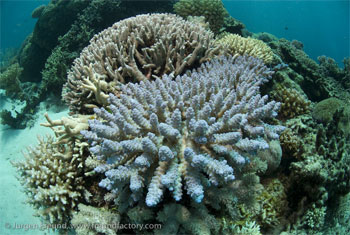Science for the Management of Living Marine Resources
Background
In recent years, the scientific study of living marine resources has experienced a shift in its fundamental approach. Traditionally, ocean sciences have been very compartmentalized; specific subjects were studied as if they existed as isolated, independent units. However, the international marine science community is beginning to realize the extent of the complex interdependencies that exist among the different elements of the marine environment. Accordingly, an 'ecosystem approach' to the examination of the oceans and coastal waters has become the most widely accepted standard of marine scientific research. The ecosystem approach is a scientific methodology that recognizes that biological processes and systems interact dynamically with their environment, these interactions are often non-linear, and that there will be gaps in data and knowledge. Furthermore, the global marine environment is increasingly threatened by inter alia: over-fishing, global climate change, habitat modification and destruction, alien species introduction and land based sources of marine and coastal zone pollution. All disciplines of marine science, including those specializing in living resources, have an obligation to help manage and mitigate these threats and contribute to knowledge that will facilitate sustainable use of the global oceans.
The Ocean Science division of UNESCO's Intergovernmental Oceanographic Commission (IOC) has identified several key scientific issues central to understanding marine ecosystems and their living resources, and has developed corresponding programmes (often in collaboration with partners). These programmes include:
- Benthic Ecosystems
- Harmful Algal Bloom programme
- Coral Bleaching
- Large Marine Ecosystems (LMEs)
- Ecosystem Indicators for Fisheries
- Ecosystem Dynamics (GLOBEC)
- Coastal Nutrient Enrichment


